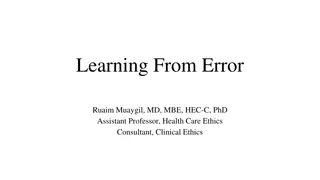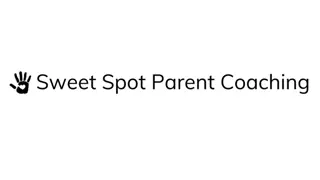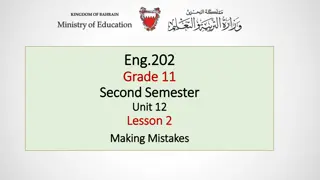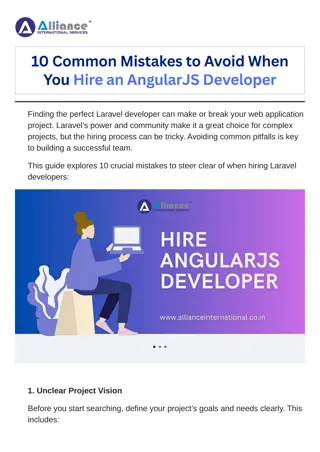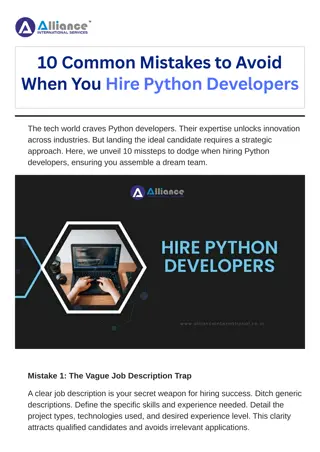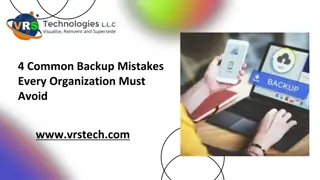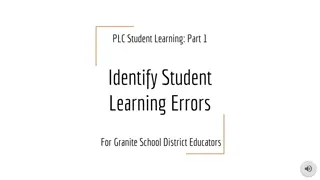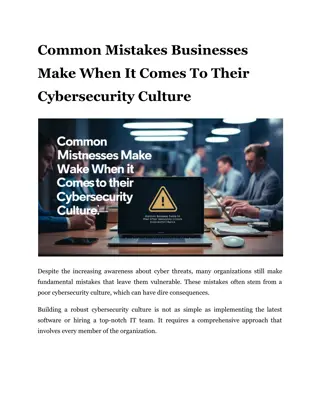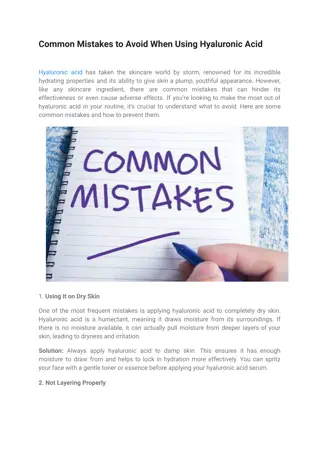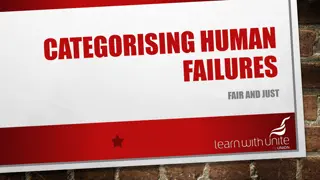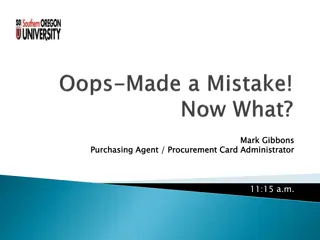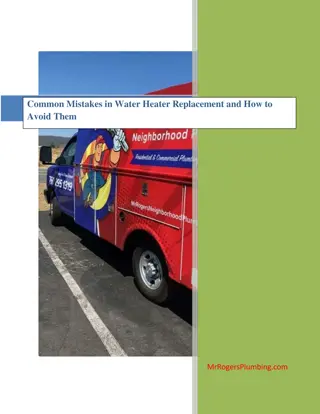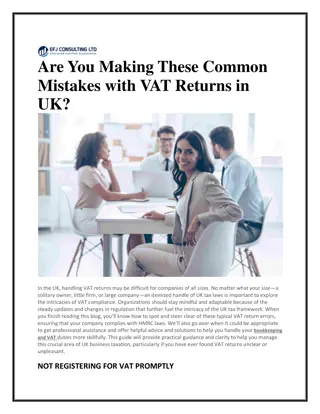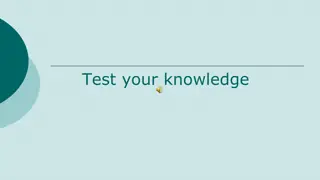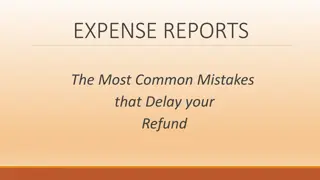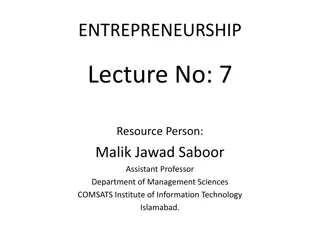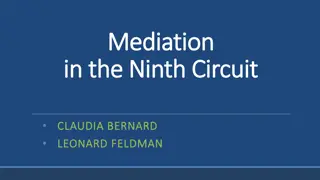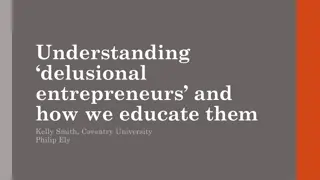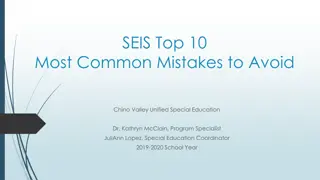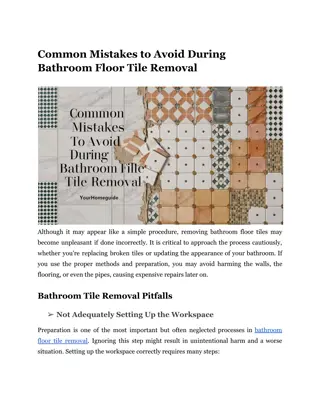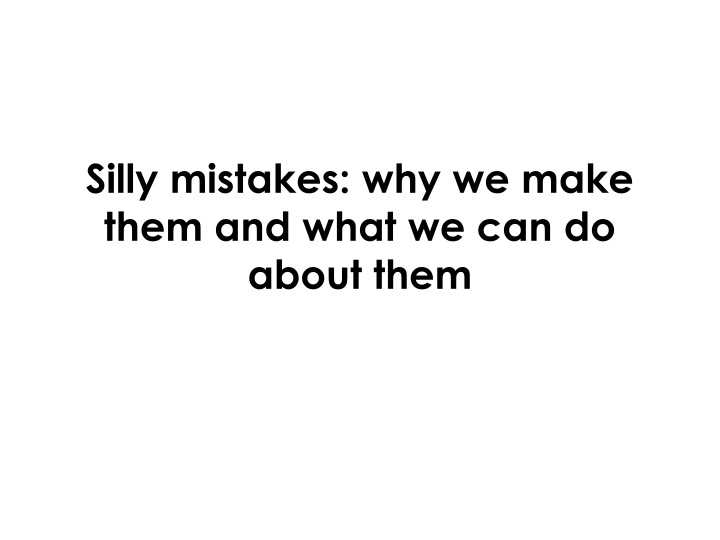
Effective Strategies for Avoiding Silly Mistakes in Exams
Discover why we make silly mistakes in exams, the importance of taking ownership of errors, and how stress impacts cognitive performance. Learn how to minimize mistakes through effective study techniques and stress management for better exam outcomes.
Uploaded on | 0 Views
Download Presentation

Please find below an Image/Link to download the presentation.
The content on the website is provided AS IS for your information and personal use only. It may not be sold, licensed, or shared on other websites without obtaining consent from the author. If you encounter any issues during the download, it is possible that the publisher has removed the file from their server.
You are allowed to download the files provided on this website for personal or commercial use, subject to the condition that they are used lawfully. All files are the property of their respective owners.
The content on the website is provided AS IS for your information and personal use only. It may not be sold, licensed, or shared on other websites without obtaining consent from the author.
E N D
Presentation Transcript
Silly mistakes: why we make them and what we can do about them
Why do we drop marks in exams? Dropped marks for some other reason Dropped marks because you did not know the material well enough
When you say you dropped a mark because of a silly mistake or because you didn t read the question, this is your brain trying to get you off the hook and preserve your self esteem. In reality, 9 times out of 10 you got the question wrong because you did not know the material well enough
Take ownership of your mistakes. If you did not know the material well enough that s your responsibility. You can know the material better through the effective study strategies Don t try to get around it with weak excuses.
So for the other cases, why have we made a mistake? Stress can cause errors Cognitive load theory
A little bit of stress is a good thing Effects of stress can be minimised by using effective study strategies Manage your stress before you enter the exam hall: generally, the more prepared you are the less stressed you will be
The working memory can hold approximately five items. This is universal. Working memory Environment This process is what we call learning it only occurs with practice and thinking Long-term memory
CLT Summary: human processing power is limited. If too much is demanded of the working memory, individual items will be ignored.
Question: Write the ionic equation for this neutralisation reaction. Include state symbols. (2) I made a silly mistake What actually was the mistake? I didn t read the question You mean you stopped reading it in the middle of the sentence?? I didn t read the question carefully Ok so what can you do next time? Read the question more carefully How do you read something more carefully? Read the question more slowly Do you really think that will help? Read the question again None of these pieces of advice addresses the main problem.
Write the ionic equation for this neutralisation reaction. Include state symbols. By the time you have got to the end of the first sentence your brain is thinking about a large number of different things Your cognitive load is too high for you to take in the second part
So what do you do? Check your answers? If you do this, all you will do is actually check your answers That means you will look at spelling, grammar and whether it makes sense not whether you have actually answered the question You need to check the question
Read the question. Cognitive load: high Answer the question. Cognitive load: high Read your answer again. Cognitive load: low (WM is just looking at what is there you aren t having to construct your answer again) Read the question again. Cognitive load: low (the question does not demand the WM to start preparing an answer that has already been achieved) Have you answered the question? Cognitive load: low
Read the question Answer the question Read your answer Check the question
Common advice: Read the question and check your answers My advice: Read your answer and check the question
Mr Boxers Top Tips For Exam Success 1. Make sure you know the material as well as you possibly can by using effective study techniques 2. Once you have answered a question, check both your answer and the question
Further reading: Willingham, Why don t students like school? Didau and Rose, Psychology: What every teacher needs to know http://coral.ufsm.br/tielletcab/Apostilas/cognitive_load_theory_sw eller.pdf http://edrev.asu.edu/edrev/index.php/ER/article/viewFile/2025/54 5 https://gregashman.wordpress.com/2017/01/27/cognitive-load- theory-the-single-most-important-theory-for-teachers-to-know/ https://theconversation.com/why-students-make-silly-mistakes-in- class-and-what-can-be-done-48826 http://www.aft.org/sites/default/files/periodicals/WILLINGHAM%2 82%29.pdf http://www.learningspy.co.uk/reading/problem-reading-along/ https://chronotopeblog.com/tag/yerkes-dodson-law/

